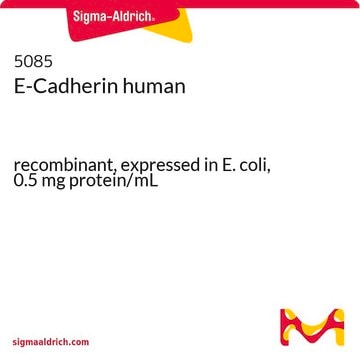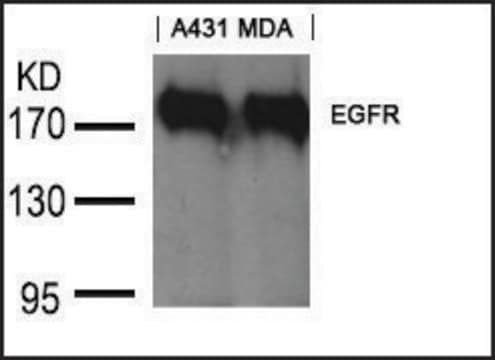E2153
E-Cadherin/Fc Chimera from mouse
>90% (SDS-PAGE), recombinant, expressed in NSO cells, lyophilized powder
Synonym(s):
L-CAM, Arc-1, Cell-CAM120/80, Epithelial cadherin, Uvomorulin
About This Item
Recommended Products
biological source
mouse
Quality Level
recombinant
expressed in NSO cells
sterility
sterile; sterile-filtered
Assay
>90% (SDS-PAGE)
form
lyophilized powder
mol wt
monomer calculated mol wt 88.2 kDa
~120 kDa by SDS-PAGE (reducing)
calculated mol wt 88.2 kDa
packaging
pkg of 50 μg
technique(s)
cell culture | mammalian: suitable
impurities
endotoxin, tested
UniProt accession no.
shipped in
ambient
storage temp.
−20°C
Gene Information
mouse ... Cdh1(12550)
General description
Application
Biochem/physiol Actions
Physical form
Storage Class Code
13 - Non Combustible Solids
WGK
WGK 3
Flash Point(F)
Not applicable
Flash Point(C)
Not applicable
Personal Protective Equipment
Certificates of Analysis (COA)
Search for Certificates of Analysis (COA) by entering the products Lot/Batch Number. Lot and Batch Numbers can be found on a product’s label following the words ‘Lot’ or ‘Batch’.
Already Own This Product?
Find documentation for the products that you have recently purchased in the Document Library.
Our team of scientists has experience in all areas of research including Life Science, Material Science, Chemical Synthesis, Chromatography, Analytical and many others.
Contact Technical Service








